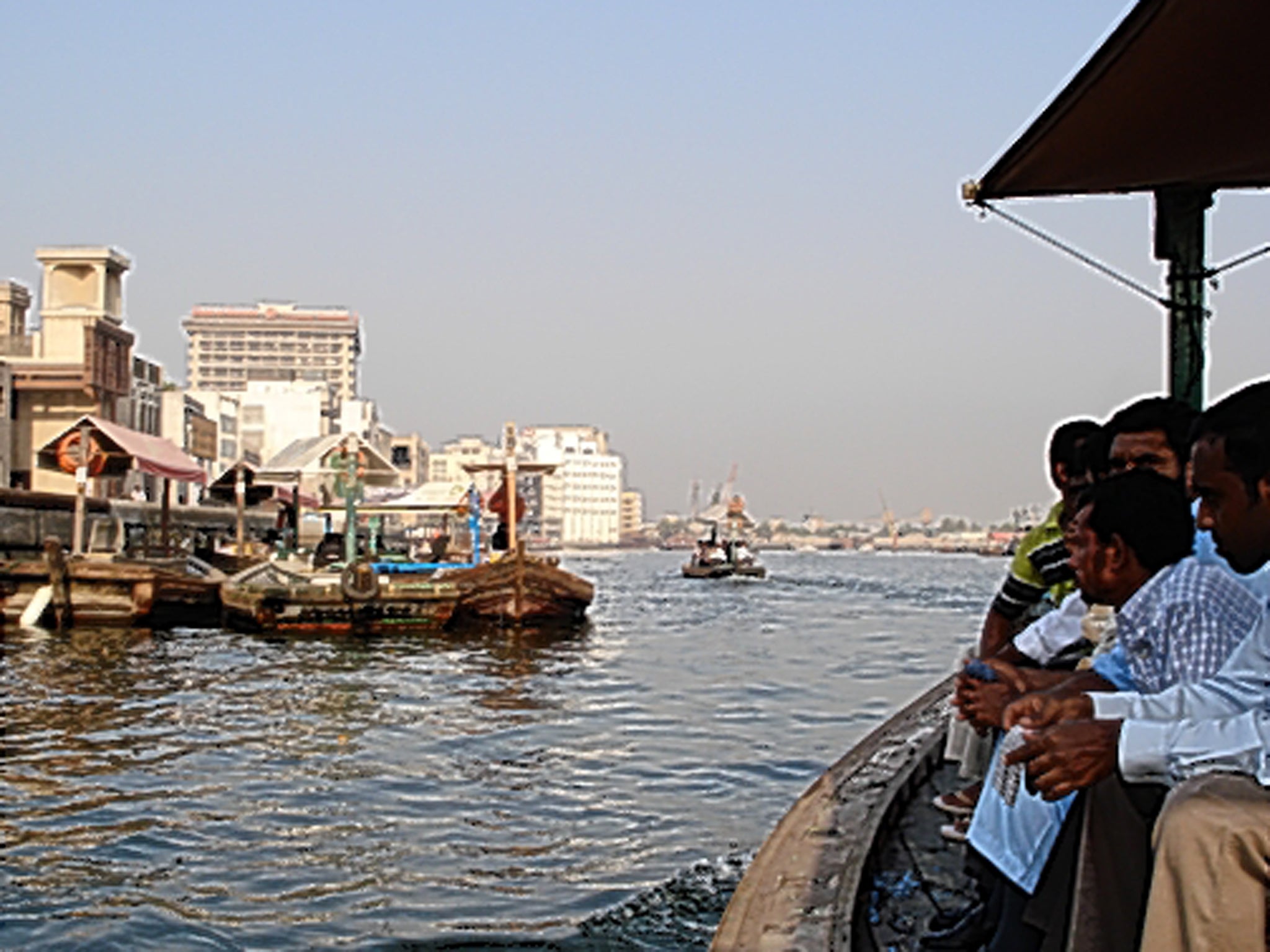Simon Calder: The heat is on for Dubai, not Scotland
The man who pays his way

Summer in the city can be heavenly or hellish, depending where you choose to travel. As I write on Thursday morning, it is high noon in Dubai and the temperature is heading for 45C (that's 113F in old money). Yet something strange is happening: more British people are flying to the UAE's main tourist spot this summer than ever before.
To introduce an unseasonably icy metaphor, British holidaymakers' behaviour changes only glacially. Next Friday, which is Gatwick airport's busiest day for outbound travel, tourists are heading for the usual suspects – the Spanish quartet of Palma de Mallorca, Malaga, Barcelona and Tenerife. From Manchester, which can now claim to be Britain's main holiday airport, the list is slightly different. In at two: Heathrow, which I imagine is not the final destination for many travellers. Dalaman in Turkey replaces Malaga, and Alicante supplants Barcelona.
All very predictable. As is the top destination from Heathrow: New York JFK, which took over from Paris when the Channel Tunnel opened. Next Friday, an average of 10 passengers a minute are expected to step aboard westbound jets flying on the world's premier intercontinental air route from Heathrow to JFK. Good luck, everyone: even at 4am local time, the New York Times tells me the temperature in Manhattan is a broiling 28C, on its way to a predicted 36C – coincidentally the summer average in Dubai, and equally unsuited for human habitation.
In second place, though, the outbound figures from Heathrow have changed dramatically. The silver podium position has long been held by Edinburgh, a reflection of the importance of links between the English and Scots capitals. Right now the heat is only mildly on in Edinburgh (Thursday's peak, 25C). Bookings for the busiest day of the year are looking equally rosy, with an average of six northbound passengers per minute. But the Scottish capital has been relegated to bronze, supplanted by Dubai as the silver city, with an average of 6.5 passengers a minute.
Has the heatwave gone to holidaymakers' heads, driving them to the desert in search of even more searing temperatures? No. The reason the UAE's main tourist location has taken over this summer is because of Qantas switching its refuelling stop from Singapore to Dubai.
The vast majority of those passengers are going beyond "DXB". But it is a sign of the times that there are now 11 flights a day on the route, most of them using the world's largest passenger aircraft, the Airbus A380. Qantas and Emirates boast these big beasts, while their competitors – BA, Royal Brunei and Virgin Atlantic – snap at their huge heels. Should you be running late for the 9.30pm departure, don't fret: there are four more flights within the hour.
Fewer villains, more victims
The heat is off for some trouble-prone holidaymakers, according to the latest Foreign Office assessment of British Behaviour abroad. This valuable body of work is not one of the many dodgy travel surveys but the real numbers of UK citizens who get into trouble overseas. It was established five years ago, which makes it possible now to draw some sensible conclusions.
Some numbers stay depressingly constant. In an average month, an astonishing 2,400 Brits lose their passports abroad, and 300 end up in hospital (presumably some unfortunate folk do both on the same trip). Drug offences have fallen by 35 per cent in the past five years, which is encouraging – unless Brits have just become better at not getting caught with illegal substances.
Worryingly, though, women are more at risk. Sexual assaults are at an all-time high, with a dozen rapes reported by British citizens in the average month. There have been sharp increases in Spain, Greece and Turkey. And in both China and the UAE, four rapes were reported, compared with none in the previous year.
The Foreign Office advises women "to take the same precautions they would at home to avoid putting themselves at risk". In particular: "Never accepting car rides from strangers; ask the hotel to recommend a taxi firm. Never leave food or drinks unattended, so they can't be spiked".
Arctic role model
As The Independent reported this week, the heatwave has traumatised late bookings, with one leading travel industry figure saying that foreign-holiday sales have been hit even harder than during the volcanic-ash crisis in 2010. Peak-season deals are better than for years, with a week's package on the Greek island of Zante during the school summer holidays costing under £300 (on 29 July with Thomas Cook, including flights from Gatwick and self-catering accommodation). One part of the world that is seeing a surge: the Arctic. Hurtigruten, which runs ferries along the Norwegian coast, mainly above the Arctic Circle, reports 50 per cent more bookings by British travellers in July, year on year.
Hurtigruten's UK boss, Kathryn Beadle, says: "As soon as the weather warmed up, so did bookings to the Arctic." But before you make too much of the meteoric meteorological rise in sales, note that the firm declined to give me the absolute numbers. It might be an increase from 8,000 to 12,000, or it could be just from eight to 12. I happen this week to have bought four tickets for a voyage from Bergen to Kirkenes, on the Russian border, in October. My reasoning: this could be the last great winter for many years to see the Northern Lights, and prices are very good. But I guess subconsciously it could be the heat.
Subscribe to Independent Premium to bookmark this article
Want to bookmark your favourite articles and stories to read or reference later? Start your Independent Premium subscription today.

Join our commenting forum
Join thought-provoking conversations, follow other Independent readers and see their replies